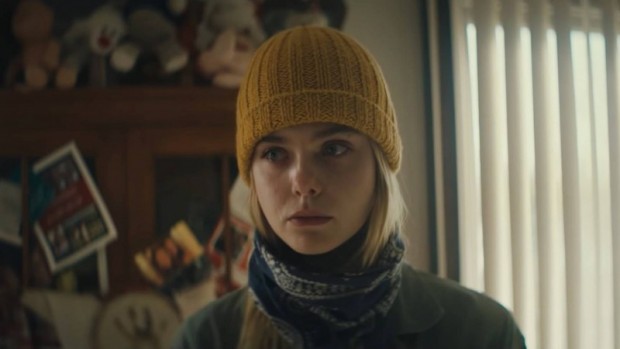Peter Dinklage and Elle Fanning spin their wheels in the hollow post-apocalyptic drama I Think We’re Alone Now

For the first 15 or so minutes of I Think We’re Alone Now, the sophomore feature from acclaimed The Handmaid’s Tale director Reed Morano, Peter Dinklage walks around a desolate small town cleaning up after the apocalypse. He enters abandoned homes, collects batteries and family pictures, disposes of skeletal remains, and marks a giant “X” outside of each house to indicate that it’s counted. Morano’s gray-toned photography and Adam Taylor’s noise-driven score give an eerie vibe to the proceedings, and Dinklage’s natural screen presence goes a long way toward making his character’s “work” feel meaningful and mysterious. We don’t yet know his name or what has happened or why he’s doing this, but his actions fascinate on a pure process level. There’s power in watching someone dutifully perform a task. Plus, the most mundane routine can have existential import when it takes place in a desolate landscape marred by the remains of the human race.
Unfortunately, I Think We’re Alone Now stops being interesting right when Grace (Elle Fanning) comes to town, mostly because she brings screenwriter Mike Makowsky’s trite ideas about loneliness and community along with her. Grace manages to coax out her new companion’s name, Del, but can’t quite seem to break through his cold, unfeeling exterior. Del doesn’t hide his frustration that this newcomer has tainted his utopic isolation with her questions and her assistance and her knack for finding a dog. Will Del set aside his reclusive ways and embrace Grace’s company as a co-cleaner? Will Grace’s sudden appearance eventually be explained, perhaps by a limp third-act twist? Do these two seemingly disparate people ever come to a mutual understanding about each other, and possibly adopt a more positive view of their new grim reality? Not to blow the surprise—and you should skip to the next paragraph if you want to remain unspoiled—but yes, yes, and hell yes.
It’s not that this type of relationship drama is dead on arrival, but it becomes a nonstarter when it’s blighted by paper-thin characterizations. (Oddly enough, The Last Man On Earth’s dark-as-hell first season places the proper spin on this premise by following a man who prays to God for companionship, gets his wish, and discovers that it’s actually a curse.) Makowsky’s script frequently mistakes vagueness for mystery, creating faux-cyphers of Del and Grace to disguise their fundamental blandness. Dinklage and Fanning’s inconsistent chemistry aside, they play unknowable characters that can’t compel on the basis of their mystique. And while Morano and Makowsky exhibit admirable restraint in refusing to dole out unsatisfactory answers to unnecessary questions regarding the film’s apocalypse, they don’t exactly employ the setting with much purpose, either. At best, it’s a perfunctory environment that merely suggests wasteland rather than embodies it, and at worst, it just resembles a practical location for a low-budget indie film shoot. It doesn’t do I Think We’re Alone Now any favors that it’s possible to mentally fashion a similar story in a small ghost town instead of the apocalypse.
Worse, I Think We’re Alone Now’s primary thematic thrust feels especially underdeveloped. Morano’s film wants to examine the emotional consequences of immersing oneself in trauma, but Makowsky’s script merely paws at the edges of the idea rather than diving into the knottiness of it. Case in point: Grace’s arrival doesn’t complicate Del’s situation as much as it just engenders more questions about his coping mechanism and her origins. It’s only when I Think We’re Alone Now takes a warmed-over Eternal Sunshine-esque detour in its home stretch that the film clarifies its intentions, but by that point, it only serves to highlight the preceding hollowness. By the end, Dinklage’s systematic inventory skills prove much more exciting than the insipid aftermath of a boring meet-cute.